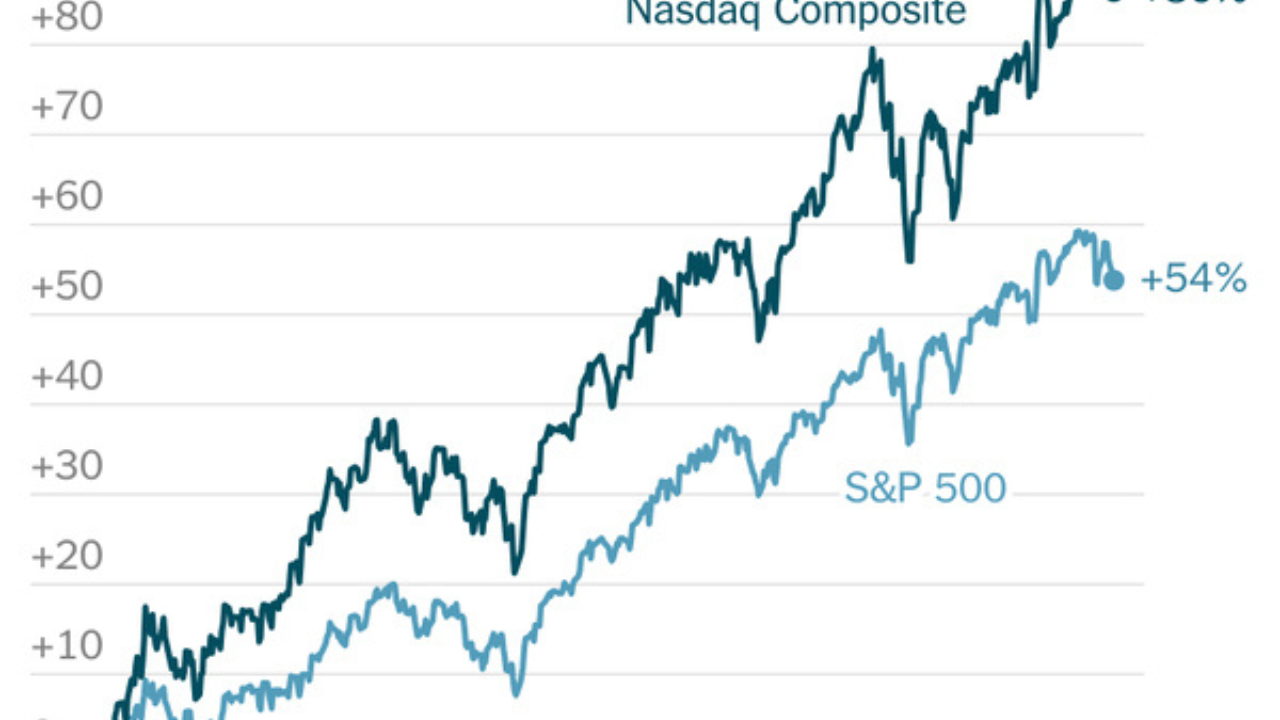Many people do not fully understand what markets are or how they operate.This blog is covered by financeinfo.They are everywhere, from the local farmer’s market where fresh produce is sold to the complex financial where stocks trade within milliseconds. They influence our lives in many ways. Understanding markets allows us to make better decisions in our global economy as consumers, investors and citizens.
Table of Contents
Market

A system or place where buyers and vendors come together to trade goods, services or resources. The exchange can take place online, by phone or through intermediaries. It’s important that people looking to buy an item can connect with those who are willing to sell it.
Imagine markets as an economic matchmaking service. They bring people together with varying needs and wants to allow them to trade. You’re part of a market when you buy coffee at your local café. You wanted to buy coffee and the cafe owner wanted it to be sold. The transaction took place because both parties found value in this exchange.
The operate under the principle of voluntary trade. You are not forced to buy the coffee and neither is the cafe owner. Both parties feel better off than they were before the transaction. The cafe owner will value your money over the coffee you received, while you’ll value the coffee you got more than you paid for it.
Types of markets
There are many types of markets, each with its own needs and rules.
This includes everything from supermarkets and shopping centers to online retailers such as Amazon. Product are a place where you can buy tangible products that you can hold and touch – such as food, clothing and electronics.
Services are focused on intangible services like healthcare, education and entertainment. You’re part of service markets when you go to a doctor or hire a plumber. In developed economies, these markets have grown enormously as society has moved away from producing only physical goods.
Labor Markets is where people exchange their time and skills for wages or salary. This is present in every job application, interview and employment contract. The market is made up of both buyers and sellers. Companies are looking for specific skills while individuals are offering their time and abilities.

Markets and their Importance in Modern Society
The play a number of crucial roles in modern life. They solve the allocation of resources problem first and foremost. In a world with unlimited wants and limited resources, the markets determine what is produced, who makes it, and how it will be consumed. When something becomes scarcer, the prices increase, which encourages more production while discouraging unneeded consumption.
Innovation and efficiency are also driven by markets. Companies that are able to produce higher quality products at lower prices tend to be successful, while those who can’t adjust often fail. The constant pressure of competition forces businesses to constantly improve their products and operate more efficiently. They rewarded companies who could produce increasingly sophisticated devices consumers wanted.
They also offer the benefit of specialization. Markets allow people to trade and focus on their strengths instead of trying to make everything. A doctor does not need to build his own home, grow his own food or produce medical equipment. They can choose to specialize in medicine, and then use their income to purchase what they need.
Market Dynamics: How they Work
Supply and demand are fundamental forces that govern the market. The supply is the amount of something that sellers are willing and able to sell at different prices. In general, when prices increase, suppliers will provide more as they are able to make greater profits. Demand is a measure of how much the consumer wants to spend at different prices. As prices drop, people tend to want to purchase more as they are getting a better deal.
The competition is vital to the health of markets. In order to compete with rivals, sellers must provide a good price or they risk losing customers. The competition results in lower prices, higher quality and more options for consumers. When competition is restricted – for example, by high entry barriers or government regulations – markets may not function as well.
When the perfect conditions for competition are not present, market failures can happen. Monopolies can result in higher prices and less innovation when one company dominates the market. Asymmetries in information, when one party has more knowledge than the other can lead to unfair transactions. Externalities are costs or benefits, such as pollution, that do not affect the parties directly involved.
Digital Markets
The technology has changed the way markets work in a profound manner. Online places such as Amazon and eBay have created global markets, where buyers and vendors can connect regardless of distance. Digital platforms have lowered transaction costs for small businesses and made it easier to reach their customers around the world.
Data and algorithms have also altered the dynamics of markets. Now, companies can track consumer behavior and adjust their prices in real time. It has led to phenomena such as dynamic pricing where the price of airline tickets changes based on factors like demand patterns, search histories, and others.
Blockchain technology and cryptocurrency represent a new frontier in the evolution of business.These innovations have the potential to create new markets and alter how we view money, contracts, trust, and economic transactions.

FAQs
How do you tell the difference between an economy and a market?
A market is the specific mechanism by which buyers and sellers trade particular goods and services. An economy, on the other hand, encompasses all, institutions and economic activity within a given country or region.
How are prices set on the market?
The interaction between supply and demand determines prices. Prices rise when there are few items available but many people want them. Prices fall when there is plenty of something, but not many people want it.
Can markets exist without government regulation?
Most modern are regulated, even though they can operate with little government intervention. Regulations are usually aimed at ensuring fairness in competition, protecting consumers against fraud, and correcting failures such as monopolies or damage to the environment.
What are the causes of market crashes and bubbles?
Market bubbles are caused by prices that rise much higher than the value of assets. This is often due to speculation and mass psychology. Reality sets in, and the prices fall back to more realistic levels.
What is the impact of global markets on local communities?
Local communities can face both challenges and opportunities from global markets. Positively, they can provide greater access to customers, suppliers and lower prices.
conclusion :
The markets are one of the most important inventions in human history for organizing economic activity.They are a simple solution to a complex problem: how do you coordinate the actions of millions people with different needs, wants and capabilities? The markets, through the seemingly simple mechanism that is voluntary exchange, allocate resources, create innovation and produce the prosperity of modern societies.
Leave a Reply